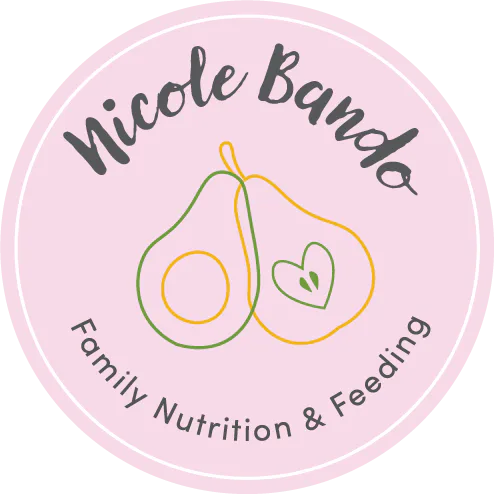
Calcium is an essential nutrient for building healthy bones and teeth. The majority of our body’s store (99%) is found in the skeleton. The major source of calcium in our diet is dairy; though it is present in other foods too. Many parents report that their toddlers drink milk before bedtime and worry that stopping it will upset the bedtime routine. Parents are often concerned that their child isn’t eating enough during the day, especially if dealing with a fussy or selective eater.
There are many good reasons to change the evening milk routine. The evening bottle of milk may fill your child up and affect their appetites, which may contribute to fussy eating. Drinking milk out of a bottle or after teeth brushing can contribute to dental caries. Dairy contains 10 essential nutrients, including protein for growth, zinc for immunity and vitamin B12; essential to nerve cell function. However, it does not contain iron, so children who drink large quantities of milk are at risk of iron deficiency, as milk may replace other foods in their diet. Also other nutrients in milk can interfere with the absorption of iron, when consumed in excessive quantities.
So how much calcium does your child need? 1-3 year olds require 500mg per day, this increases to 700mg at 4-8 years. 1 serve of dairy provides 250mg of calcium, so a toddler needs two serves per day. See the list below to check your child’s diet for adequate calcium.
1 serve of dairy = 250mg calcium:
250ml milk
2 slices cheese – 40g
½ cup evaporated milk
½ cup ricotta cheese
¾ cup yoghurt
1 cup calcium fortified grain or nut milk
Other sources include:
100g almonds
60g sardines
½ cup canned salmon with bones
100g firm tofu – may differ between brands
Whilst your child adapts to the change, it may be a good time to alter the evening routine. Offer a small amount of milk at the end of the evening meal in a cup if concerned that dairy needs have not been met during the day. Perhaps a feeding chair can become the story chair, or moved out of the room if no longer needed. Offer full fat dairy at other times of day, for example – milk in cereal, yoghurt with fruit or cheese and biscuits as a snack, to easily meet the daily requirements. Breastmilk continues to be a source of calcium and other nutrients for breastfed toddlers.
A word on toddler formulae – these are not required for healthy children. Beyond 12 months, children should be eating the same foods as the rest of the family. Formula may take up valuable stomach space and prevent a child from accepting a variety of solid foods. Offer foods from all groups, including adequate dairy; and though toddlers may not eat consistently from day to day, this will help to ensure that your child’s growth needs are met. If you feel uncertain, see a paediatric dietitian for thorough assessment of your child’s diet.
Fussy eating is a normal stage of toddlerhood that usually passes. A healthy child will never go hungry. As parents, offer a variety of fruit, vegetables, meat or alternatives and whole grains over the day to help your child get used to different tastes and textures. Their intake will vary day to day. If your child is a very fussy eater, is not growing well or you feel concerned about lack of variety, see your NEST GP and our Women’s and Infant Health Dietitian and Lactation Consultant, Nicole Bando.
- Osteoporosis Australia www.osteoporosis.org.au (accessed 18/10/17)
- National Health and Medical Research Council. Eat for Health Australian Dietary Guidelines Summary. Canberra: Commonwealth of Australia, 2013. (Available from:

Calcium is an essential nutrient for building healthy bones and teeth. The majority of our body’s store (99%) is found in the skeleton. The major source of calcium in our diet is dairy; though it is present in other foods too. Many parents report that their toddlers drink milk before bedtime and worry that stopping it will upset the bedtime routine. Parents are often concerned that their child isn’t eating enough during the day, especially if dealing with a fussy or selective eater.
There are many good reasons to change the evening milk routine. The evening bottle of milk may fill your child up and affect their appetites, which may contribute to fussy eating. Drinking milk out of a bottle or after teeth brushing can contribute to dental caries. Dairy contains 10 essential nutrients, including protein for growth, zinc for immunity and vitamin B12; essential to nerve cell function. However, it does not contain iron, so children who drink large quantities of milk are at risk of iron deficiency, as milk may replace other foods in their diet. Also other nutrients in milk can interfere with the absorption of iron, when consumed in excessive quantities.
So how much calcium does your child need? 1-3 year olds require 500mg per day, this increases to 700mg at 4-8 years. 1 serve of dairy provides 250mg of calcium, so a toddler needs two serves per day. See the list below to check your child’s diet for adequate calcium.
1 serve of dairy = 250mg calcium:
250ml milk
2 slices cheese – 40g
½ cup evaporated milk
½ cup ricotta cheese
¾ cup yoghurt
1 cup calcium fortified grain or nut milk
Other sources include:
100g almonds
60g sardines
½ cup canned salmon with bones
100g firm tofu – may differ between brands
Whilst your child adapts to the change, it may be a good time to alter the evening routine. Offer a small amount of milk at the end of the evening meal in a cup if concerned that dairy needs have not been met during the day. Perhaps a feeding chair can become the story chair, or moved out of the room if no longer needed. Offer full fat dairy at other times of day, for example – milk in cereal, yoghurt with fruit or cheese and biscuits as a snack, to easily meet the daily requirements. Breastmilk continues to be a source of calcium and other nutrients for breastfed toddlers.
A word on toddler formulae – these are not required for healthy children. Beyond 12 months, children should be eating the same foods as the rest of the family. Formula may take up valuable stomach space and prevent a child from accepting a variety of solid foods. Offer foods from all groups, including adequate dairy; and though toddlers may not eat consistently from day to day, this will help to ensure that your child’s growth needs are met. If you feel uncertain, see a paediatric dietitian for thorough assessment of your child’s diet.
Fussy eating is a normal stage of toddlerhood that usually passes. A healthy child will never go hungry. As parents, offer a variety of fruit, vegetables, meat or alternatives and whole grains over the day to help your child get used to different tastes and textures. Their intake will vary day to day. If your child is a very fussy eater, is not growing well or you feel concerned about lack of variety, see your NEST GP and our Women’s and Infant Health Dietitian and Lactation Consultant, Nicole Bando.
- Osteoporosis Australia www.osteoporosis.org.au (accessed 18/10/17)
- National Health and Medical Research Council. Eat for Health Australian Dietary Guidelines Summary. Canberra: Commonwealth of Australia, 2013. (Available from:
